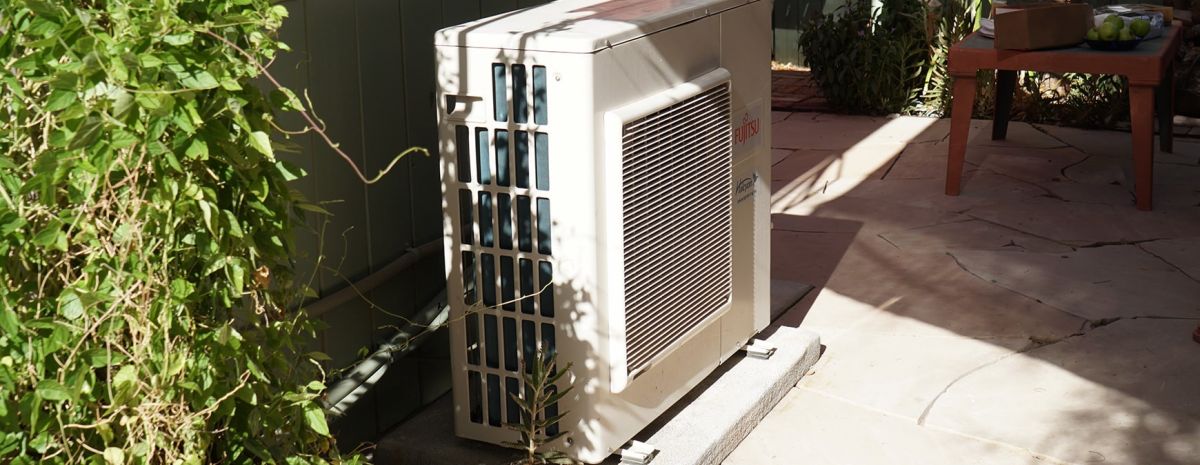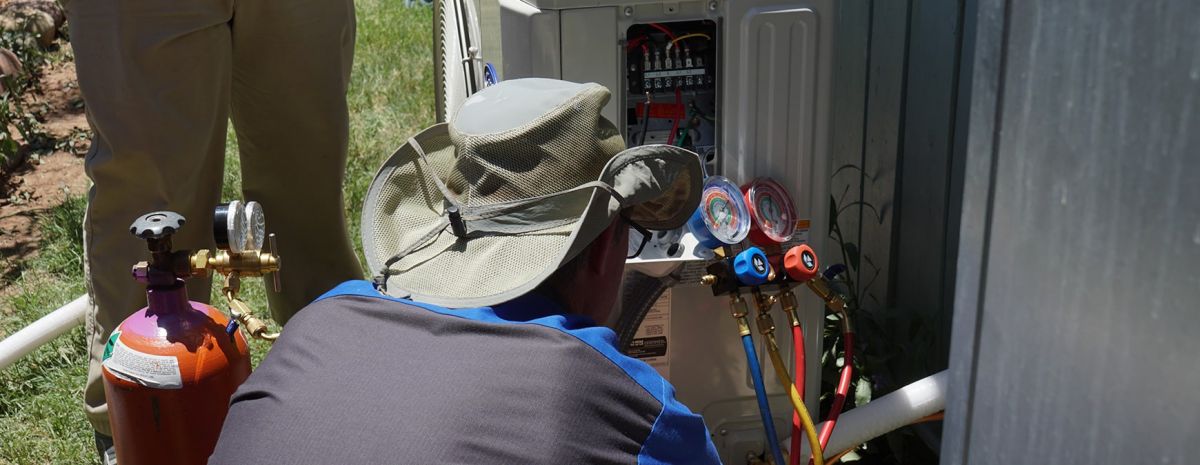
If you are training to become an HVAC technician, you may have wondered, “What is a heat pump?”
In basic terms, a heat pump is a type of HVAC equipment that transfers heat instead of generating it from scratch.1
It can be helpful to know what heat pumps are because you may run into them after completing your HVAC classes. This article will dive into the basics of heat pumps. Using a common type of heat pump, the air-source heat pump, as an example, we’ll answer the following questions:
- What does a heat pump do?2
- How does a heat pump work?3
- Are heat pumps efficient?4
What Does a Heat Pump Do?
A heat pump transfers heat from one location to another. This is done by pulling heat from outside sources, such as air, inside to heat the building.2
There are multiple ways in which heat pumps can gather heat from outside sources, and the air outside is only one source they can pull from. There are other types called geothermal heat pumps that pull heat from below the ground.2
Get Started on the Path to a New Career
Fill out our form to learn how we can help you change your life.
Since air-source heat pumps pull heat from the outside air to heat a building, you may be asking yourself, “How does a heat pump cool the home?” The answer is simple: the process is reversed by taking the heat out of the building to cool it.2
How Does a Heat Pump Work?

Now that you know what heat pumps do, you may be wondering, “What does a heat pump look like? How do heat pumps work?”
Heat pumps have two major components: the indoor and outdoor units, which both consist of a coil and a fan. The coil in both units can act as an evaporator or condenser depending on if it is in cooling or heating mode.3
A heat pump also has a compressor and an expansion valve that help move and cool the refrigerant during the cooling or heating process.3
Here is a run-through of an air-source heat pump’s cooling process:3
- The process starts with refrigerant pumping through the coil at the indoor unit, which acts as an evaporator. Air from inside the home is then blown onto the coils. The refrigerant absorbs heat from that air, which turns it into a gas.3
- The gaseous refrigerant then passes through the compressor, which increases its temperature and pressure.3
- The coil located in the outdoor unit acts as a condenser in cooling mode. The fan in the outdoor unit then moves the gaseous refrigerant through the condenser. Because the refrigerant is hotter than the air outdoors, the heat from the refrigerant naturally is dispersed outside, leaving the refrigerant to cool down and return to its formerly liquidated state.3
- The refrigerant is cooler at this point, but when it passes through the expansion valve, it is cooled again, which means the refrigerant is ready to start the process all over.3
To heat the home, this process is simply reversed. This is done through a reversing valve, which reverses the refrigerant flow, so it moves the opposite way, pulling in hot air for the home while blowing cold air out.3
Are Heat Pumps Efficient?
Because heat pumps simply transfer heat in and out to cool and heat buildings, they are extremely energy efficient.4
Other types of HVAC systems use electricity to generate heat. Because the heat pump simply uses preexisting heat, the heat pump just uses electricity to power itself and nothing more.4
Heat pumps can have an efficiency rating of over 300%, which means they can provide over three units of heat for every unit of energy used. This means that heat pumps can be pretty inexpensive to run even at a constant rate. On average, a customer’s utility bill may increase by $75 a month to run a single heat pump in a home continually.4
You could mention to your customers that if they supplement their existing gas, oil or electric heating system with a heat pump, they could save as well. A single high-efficiency heat pump can save the typical home up to 300 gallons of oil, reducing that home’s carbon footprint.4
Other Energy Efficient HVAC Equipment
Now that you know more about heat pumps, check out another energy efficient piece of HVAC equipment: the smart thermostat.
Additional Sources
1https://www.energy.gov/energysaver/heat-and-cool/heat-pump-systems
2https://home.howstuffworks.com/home-improvement/heating-and-cooling/heat-pump.htm
3https://www.carrier.com/residential/en/us/products/heat-pumps/how-does-a-heat-pump-work/
4http://www.truenorthenergyservices.com/heat-pumps-101-faq/
This blog has been labeled as archived as it may no longer contain the most up-to-date data. For a list of all current blog posts, please visit our blog homepage at https://www.rsi.edu/blog/

